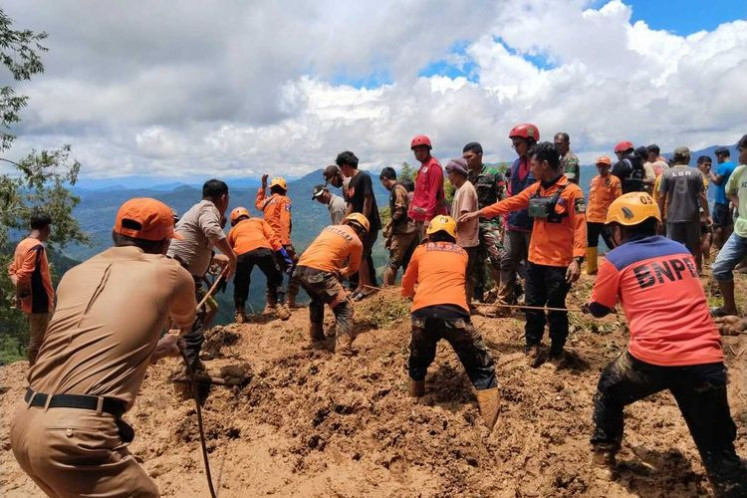Seeking compliance, normalizing economic ties
The Joint Comprehensive Plan of Action (JCPOA) on Iran’s peaceful nuclear activities was inked by the United Nations Security Council’s (UNSC) five permanent (P5) members — China, France, Russia, the United Kingdom and the United States — plus Germany on one side and Iran on the other in Vienna, Austria, on June 14, 2015
Change Size

The Joint Comprehensive Plan of Action (JCPOA) on Iran’s peaceful nuclear activities was inked by the United Nations Security Council’s (UNSC) five permanent (P5) members — China, France, Russia, the United Kingdom and the United States — plus Germany on one side and Iran on the other in Vienna, Austria, on June 14, 2015.
Adopted by the UNSC in Resolution 2231 on July 20, 2015, the JCPOA terminated the previous resolution on the Iranian nuclear issue which had relieved Iran from embargoes imposed by the Security Council, the European Union and the US.
Member states, too, were obliged to accept and carry out the Security Council’s decision and establish their entire
gamut of cooperation with Iran accordingly.
Taking 22 months to conclude, the JCPOA was a diplomatically crucial breakthrough during the last decades and could have become an international model to resolve disputes and international crises without resorting to coercion or military force.
Yet, as Donald Trump took the saddle of the US presidency and rode into the Oval Office, he trampled on this international agreement merely to execute his campaign promises, which resulted not only in the US’ withdrawal on May 8, 2018, but its unilateral exertion of more sanctions, a boycott of Iran and intimidation of other countries to sever their trade relations with Iran or face UN penalties.
However, Iran’s response to the US’ withdrawal from the deal was rational. During the course of a year, Iran took, on one hand, the “patience strategy” and fulfilled its obligations under the JCPOA and, on the other, conducted extensive cooperation with the International Atomic Energy Agency (IAEA) during its inspections and surveillance of its amenities and peaceful activities.
Yet Iran’s expectation from signatory members of the deal, now P4+1, was merely the fulfillment of the deal’s obligations.
After the US withdrew from the deal, reimposed sanctions and later exerted maximum pressure, it’s sad to say that despite the political backup by the remaining members of the deal — particularly the UK, France and Germany — no pragmatic mechanism has been taken for the commencement of trade relations with Iran or to thwart the marring effects of the US withdrawal.
Bear in mind that at the time of the deal’s inking, the IAEA had verified — 15 times — Iran’s compliance and adherence through its surveillance and monitoring of peaceful nuclear activities.
Within a specific schedule, Iran has been obliged to gradually reduce its obligations in accordance with its rights under Article 26 and 36 of the JCPOA.
Thus, so far, Iran has ended some of its voluntary and nuclear trust-building measures in five steps.
However this does not signal any withdrawal on Iran’s side. It reflects Iran’s aim to safeguard the JCPOA as a significant achievement of multilateral diplomacy endorsed by the UN Security Council.
Accordingly, while keeping the diplomatic door open, Iran’s measures in the JCPOA are reversible.
In the event that other signatories fully fulfill the whole spirit of the deal to the benefit of Iran’s economy, Iran is ready to return to the accepted restrictions as stipulated by the JCPOA.
Iran will also cooperate and stick to the most important element of this deal, which is the Implementation of the Comprehensive Safeguard Agreement, the voluntary implementation of the Additional Protocol and other grants of access to the IAEA. All Iran’s measures will be done under the agency’s monitoring.
The fifth step of reducing Iran’s obligations was taken on Jan. 5, although Iran is still committed to the Agency’s surveillance and monitoring.
At this juncture, Iran has decided to remain a member of the Treaty on the Non-Proliferation of Nuclear Weapons (NPT) and continue its commitment under the Safeguard Agreement while not reducing the IAEA’s access. Iran will also continue its voluntary and temporary implementation of the Additional Protocol.
Nonetheless, Iran’s subsequent reaction is fully dependent on the practical conduct and implementation of the multiple commitments as well as the political stances of the European signatories of the deal.
Iran has always stressed that reducing steps in implementing the nuclear obligations is technically reversible, and if the deal is fully implemented, Iran will voluntarily resume the agreed-upon restrictions stipulated in the JCPOA.
Further, in proving its goodwill and keeping the door of diplomacy open, Iran has provided its political and technical conditions.
Moreover, the way that Iran has gradually reduced its obligations over the course of a year and a half shows that Iran has always tried to give diplomacy a chance.
It is crystal clear that the US sanctions have claimed many Iranian lives, which Iran considers “economic terrorism”. The question is, can all this damage be compensated for?
In the end, Iran, as a member of the NPT and a signatory to the Additional Protocol, has so far indicated that it has respected international laws and all agreements related to the peaceful use of nuclear energy and has not violated its obligations under the nuclear agreement.
Nonetheless, Iran will not step away from defending its right against the excessive demands of the US and some other Western countries.
_______
Deputy head of mission, Embassy of the Islamic Republic of Iran









